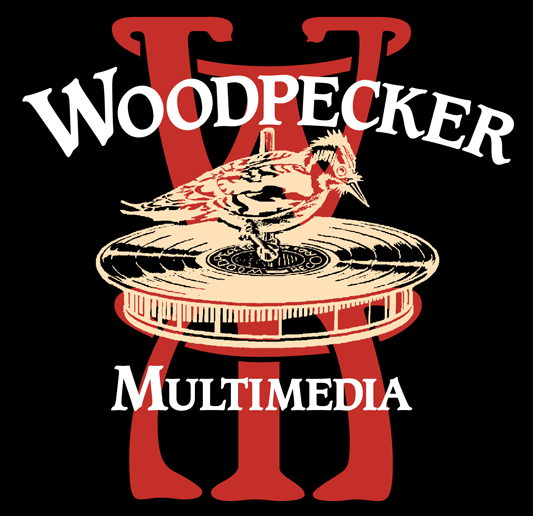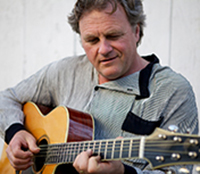 H
H

Interview With Northern Indiana Times Feb 2011“Capo Voodoo” and “songs from a Long Road” are your most recent sets and compilations of nearly decades of music. What made 2011 the right time to release the sets? How was it for you to make your way through your wealth of work, both as composer and performer, to select what would be on the sets? Was there anything in particular you were looking for, musically or otherwise, in compiling the sets. I wanted to get my best work organized more logically, since song order on an album is kind of irrelevant now in the digital days. It used to make sense to make a recording with a variety of music, with songs and instruentals, and different instruments, to make it interesting and varied. Now I find that my guitar fans want my guitar recordings, my songwriter fans want my songs, and my banjo fans want my banjo stuff. So my new compilations make it much easier for people to browse my work and find what they want to listen to. Describe capo/partial capo to those of us new to the style and what is the appeal to you in composing and performing in that style? What are the challenges to it? What keeps you passionate about the style after all these years? The partial capo is probably my largest contribution to the guitar. I'm the guy who introduced it to guitar world, and I have used it a lot on my music over the last 35 years. It's a quick way to change the landscape of what is possible on guitar. You use them for the same reasons you would use a different tuning. Tunings have been wildly popular for the last 30 years or so, and partial capos offer a similar but new set of fresh possibilities, with fewer drawbacks I think. Per your bio, you cover a myriad of musical genres - folk, country, classical, blues, ragtime, rockabilly, Celtic, bluegrass, and popular music. Is there a common thread within those genres that you find? If so, what would that be? If not, what is the appeal to being versed in such a variety? It's probably due to a convergence of 3 things. I have made my living for almost 40 years playing music, so being able to keep an audience entertained, and not being boring or repetitive has shaped my art a lot. The economics of "unpop" music means that bands are hard to keep going, and the solo troubadour thing has been my art form. Since the acoustic guitar is my chosen instrument, my repertoire is basically whatever I can make happen on my guitar by myself. I have always liked all kinds of music, and never wanted to just be a blues guy or a celtic guy, since that would be theater, and because I want to stay interested. So I might put a baroque piece next to a Chuck Berry song, which is OK with me. Is there anyone out there today that has caught your ear? If so, who are they wand what about he/she/them stands out? I'm still in pleasant disbelief that young people are showing such affinity for acoustic music and banjos and such. I lived through the 80's and 90's when it was so uncool. Younger people are now also learning to play really well, and also to dig in and learn about the roots of American music. I see a lot of young bands with good skills and a really healthy attitude about playing the music they like, and not chasing trends, fame or record deals. I like to hear people playing music, and I don't really get the Lady Gaga performance art kind of thing. It's refreshing that Taylor Swift is so huge, and I like her music. She's a troubadour, and sings and writes songs that sound like a human playing music. The noise level of pop music is coming down, and now I often hear things on the radio that sound like humans playing music. Most of pop music for 30 years has not met that test. I can't help just liking things that are real rather than artificial or pieced together in a studio. In addition to steady tour dates, what projects/plans do you have for 2012? I have invented a new guitar tuning that uses a new partial capo idea of mine. I think it is going to be a game-changer for beginning guitar. It's a much easier way to sound good, and now that my kids are almost guitar-playing age, I want to introduce this idea to children, busy adults, and especially to people with hand injuries. I plan to release a solo instrumental guitar CD this year that I will play with just the middle 2 fingers of my left hand. It's actually possible to play sophisticated-sounding solo acoustic instrumental guitar music- including things like Beatles songs and Motown hits-- if you only have 2 fingers, which I think will get some attention. I will also finish my back-catalog clean-up and release a new autoharp CD, which will have old and new things on it. Then it will be time to write a whole bunch of new music. 2/23/12 |
